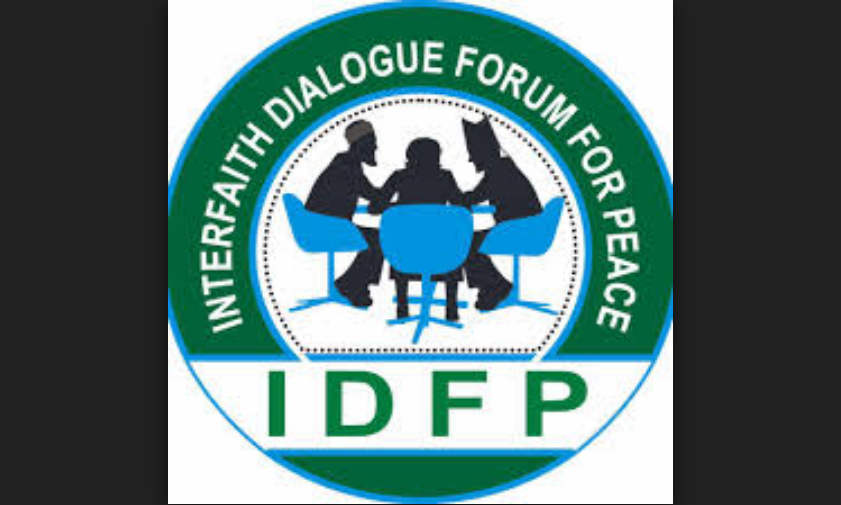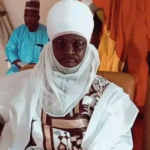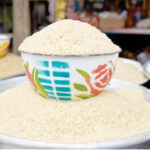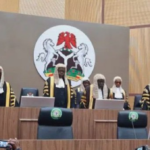By Abdullahi Abubakar Lamido
In March, 2017, I was directed by two of my teachers and mentors: Dr Bashir Aliyu Umar and Professor Salisu Shehu, to prepare a presentation that would serve as a background for discussion on interfaith dialogue. I was to present it at a roundtable organised by the Centre for Islamic Civilisation and Interfaith Dialogue (CICID) of the Bayero University Kano (BUK). The idea was to discuss the essence and principles of interfaith fialogue (IFD) and also make a critical review of its state with a view to understanding Nigeria’s IFD environment. This would then lead to gradually developing a coherent framework for Muslim participation in interfaith and intra-faith dialogues. The roundtable was held with selected scholars and intellectuals from within and outside Kano.
In my presentation, I traced the recent history of IFD and how Muslim scholars and centres globally accept it and continue to develop frameworks, review challenges and formulate approaches for making it useful as an approach to clarifying theological misconceptions, fostering peace and presenting the beautiful teachings of Islam related to social and economic justice, good governance, fighting corruption and engendering peaceful coexistence. I briefly analysed Nigeria’s experience with IFD and categorised Muslim positions on it into three: rejectionist, extremist and centrist or moderate positions, before suggesting an agenda for engagement with it in Nigeria.
The first position is of those who see IFD as a holistically problem-free endeavour, a project that can, and should replace all religious polemics and debates between Muslims and Christians based on what Muslims consider as reasons why Islam, not other faiths, represent the final pristine message of God. For this group, IFD as it is conceived and practiced today globally and in Nigeria is all-good, and has no problem. Some of them may go the next step to blame those not involved in IFD as automatic religious fanatics whose preoccupation is to fan the embers of hate. It is not surprising to see from some of these extremist interfaith apologists, certain shocking compromises, including the need to stop talking about certain fundamentals of religion; things of for-granted knowledge in the Islamic faith (ma’lum min al-din bi al-darurah). It is not uncommon also for some of these advocates to try by all means to scout for justification from Islamic textual sources on whatever may be presented as part of IFD. Many of those in this group are neither grounded in the knowledge of Islamic fundamentals (usul) and branches (furu’), nor any reasonable experience of participating in Islamic work through recognised, in-the-field Islamic organisations. They rather found themselves in it through some “opportunities” of invitation by colleagues who feel they can benefit materially from the interfaith business. Importantly, however, not everyone in this category is ignorant of Islam. But just as there are extremists in everything, there can be some who have chosen to go to the extreme in compromising certain Islamic fundamentals in order to achieve certain personal motives through IFD. Whatever the reason for the IFD extremism, I can say that most of the problems that people make reference to vis-à-vis IFD are connected to what this category, with all its branches, represents.
The second group consists of those who call for a total rejection of IFD; the rejectionists. Many in this group do that sincerely out of a genuine love for preserving the true Islamic teachings and the need to protect the Islamic faith from the calculated agendas of its enemies. They fear that IFD can lead to many compromises of Islamic fundamentals. They will often insist that “the underlying purpose is to create one religion for everyone”. They trace the origin of contemporary IFD to the Vatican, and conclude that it is a well-orchestrated Christian agenda for neutralizing and diluting Islamic consciousness which must be rejected in totality. They often do that based on what they know of the laxity of those who approve everything in the name of IFD. Many of those in this group, however, know little about IFD. They have hardly read widely about the concept, or may have read what has been written against the unification of religions which they confuse with IFD.
One sees clear misconceptions and misrepresentation of facts from many antagonists of IFD, such as the claim that all proponents of, and participants in IFD are doing so with the intention of collapsing all religions into a hybrid religion of some sort. One also observes in the ongoing debate on the matter that most commentators have read nothing on it, but rely on certain short videos of some scholars whose verdicts on the matter are clothed with unsubstantiated assertions.
Not all antagonists of IFD are completely uninformed of its true nature. There are a few who have read well about it, but have had some bad experience with some “overzealous” interfaith dialoguers, and based on that they generalise and condemn the entire endeavour. Their concerns may be genuine. But their reasoning may not be plausible; because one or three people have gone too far, exceeding the limits, then all have to stop it, even as dozens, if hundreds of others are doing it within limits. All the many gains of the IFD approach to sharing Islamic message should be sacrificed only because of its few pains.
One would be forced to mention here that the greatest reference against IFD by many social media commentators in the debate is the short clip of the late Sheikh Auwal Albany Zaria (may Allah forgive him and bless all his good deeds) where he raised some rather controversial and highly contestable claims against some prominent champions of IFD in Nigeria. No one can deny the deep knowledge and multidimensional contributions of the late Sheikh towards Islamic propagation in Nigeria. That notwithstanding, certainly whoever is aware of the IFD literature and environment globally and in Nigeria, and whoever knows well most of the people he mentioned and the kind of comments he directed at Ustaz Abubakar Siddiq Deedat, Ustaz Nurudeen Lemu, His Eminence the Sultan of Sokoto, etc. will no doubt be forced to disagree with the late Sheikh and consider the claims as part of his human weaknesses which must be put into proper contexts. Sheikh Albany was a great scholar. But he was human. His major sources on the topic of IFD are from the Arab world, especially Saudi Arabia, a country that has no experience of indigenous non-Muslims living alongside Muslims. Plus, most of what was written there are works that discuss unification of religions, not IFD. One clearly sees that confusion in his comment on the matter, may Allah have mercy on him.
Concluded on http://www.dailytrust.com.ng
Lamido can be reached [email protected]




